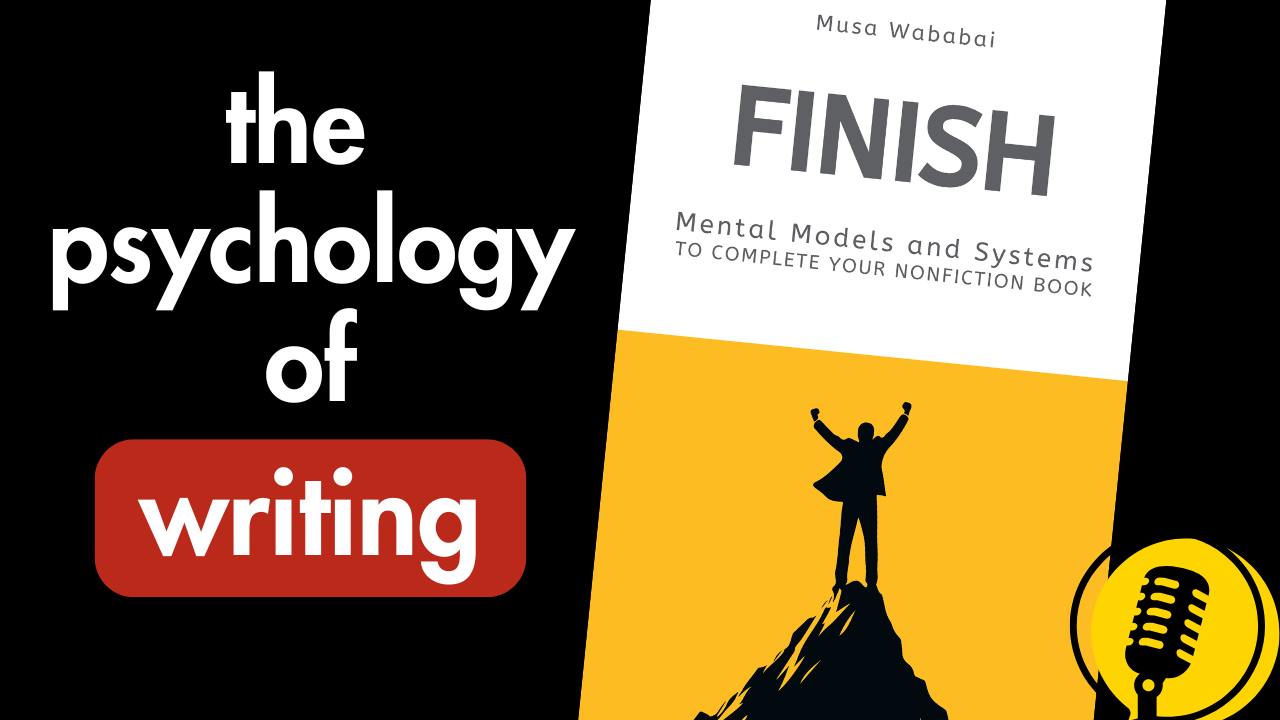15 November 2025
Let me make a confession: I used to be one of those people who had fifteen half-started nonfiction book files and not many finished manuscripts. My hard drive looked like a graveyard of noble intentions.
Then two things changed my life:
The Finish framework — which handed me a psychological crowbar to pry my procrastinating brain open.
WABABAI (Write A Book Assisted By AI) — a writing studio that became my always-on creative sidekick.
This short essay is the love child of both. It’s a breakdown of how I actually apply the ideas from Finish using the tools inside WABABAI. Spoiler: I’ve now finished tens of books. I’m currently writing two more. And no, I’m not living in a cabin in the woods or chugging oat milk in some writer’s retreat. I have a full-time job, a family, and an inbox that thinks it’s a horror movie.
Here’s how I got my writing life together:
F — Frame Your Identity
From “aspiring writer” to “author-in-progress”
WABABAI starts strong by asking the holy trinity:
What is your book about? Who is it for? Why are you writing it?
I used to skip questions like this because I thought they were fluffy. Turns out, they’re identity gold. Answering them forces you to define your purpose — the very first pillar in Finish. Now, every time I open WABABAI, I’m reminded: I’m someone who writes books with intention.
And yes, it feels great to have a digital writing environment reflect your identity back to you.
I — Install Habits
The ritual = coffee + WABABAI + 25 minutes
Finish taught me that momentum isn’t a mood — it’s a system. WABABAI became my micro-habit temple. I’d open the app, review my outline, and spend just 20–30 minutes writing or editing a section. No more staring into the abyss of an entire book. I just worked one section at a time — like LEGO bricks with a deadline.
Even better: WABABAI lets you write or dictate from the mobile app. So even if I only had time to write one paragraph while on the go, it counted. And that made me come back. Which is all habits ever ask of you.
N — Navigate Mind Traps
Scarcity, perfectionism, and “what-am-I-doing?” syndrome
When I’d freeze mid-draft — wondering if my intro was good enough or if anyone would even read this book — I used WABABAI’s IdeaChats. I’d start a chat, then ask the AI to suggest completions, alternatives, or clearer phrasing. Or I would use the proofreading or editing features for my sections.
This wasn’t outsourcing creativity. It was more like brainstorming with a robot that never got tired and never judged me. It helped me reframe stuck moments into experiments. As Finish puts it: I stopped confusing the map with the territory — and just kept walking.
I — Interrupt Perfectionism
Shipping > polishing forever
The biggest mind trick I pulled on myself? Using WABABAI’s AI-first draft feature to create intentionally imperfect drafts. I’d prompt it with my outline, let it spit out something fast and rough, and then rewrite over it like a painter sketching over a stencil.
Was it perfect? Absolutely not. Was it a million times better than staring at a blank page? Every damn time. As Musa says: “You can’t fix nothing.” WABABAI gave me something to fix. And eventually… finish.
S — Set Systems
Outline, style guide, and manuscript management—done for you
WABABAI’s system is basically Finish with buttons.
· It forces you to create an outline early.
· It helps you define your writing style (so you don’t sound like a Wikipedia page).
· It keeps chapters and drafts modular, so you can work on whichever section you feel freshest about that day.
Even better? Once I had a full draft, I ran a Rubric Assessment — a smart diagnostic tool that graded my manuscript for clarity, engagement, and insight. Think of it as a beta reader with a spreadsheet brain.
H — Human Feedback
Yes, I still need real people. But now I send them something that doesn’t suck.
WABABAI doesn’t replace human editors or beta readers — but it gets me to them faster. After two passes (one human, one assisted by WABABAI), I can ship a version that’s coherent, structured, and aligned with my book’s promise.
That means when I share it with a reader or coach, they’re responding to real substance — not a pile of disconnected notes.
The Real Win?
I didn’t just finish a book. I became a finisher.
WABABAI helps me apply Finish in real-time: micro-habits, structure, anti-perfection rituals, and momentum systems. But more than anything, it became a space where writing didn’t feel lonely or chaotic.
It felt… doable. And eventually, it felt normal.
So if you’ve ever read Finish and thought, “Yes, I get it, but I need help putting it into practice,” let me say this:
Open WABABAI.
Start a project.
Write a sentence.
Let it snowball.
You don’t have to write alone. You just have to start. And WABABAI will meet you exactly where you are — ideally with coffee in one hand and a half-decent sentence in the other.
This is a Bonus Chapter in FINISH: Mental Models and Systems to Complete Your Nonfiction Book by Musa Wababai, just released. Listen to this podcast to learn more about this book.
